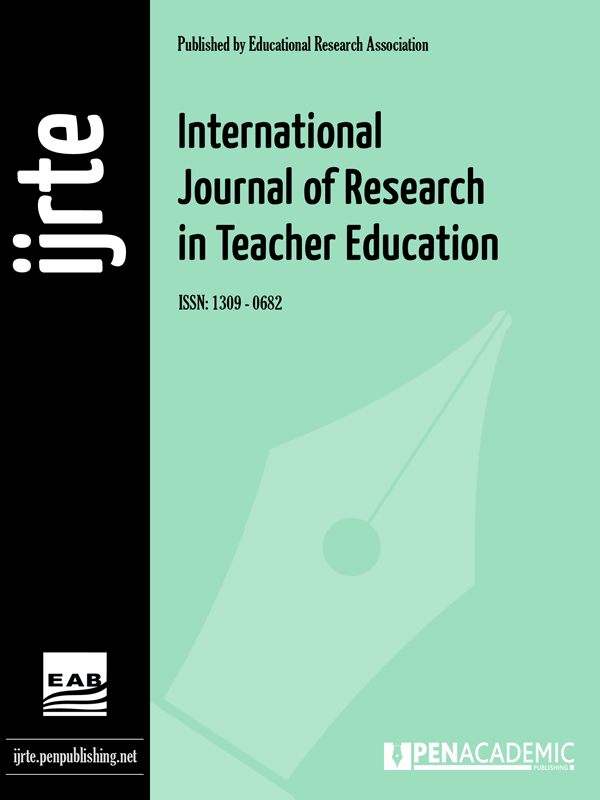Original article | International Journal of Research in Teacher Education 2023, Vol. 14(3) 113-128
The Use of Postmodernist Elements From Children’s Literature: The Sample of the Book “The Blue Donkey and the Idle Lion”
Enes Yaşar
pp. 113 - 128 | DOI: https://doi.org/10.29329/ijrte.2023.598.08 | Manu. Number: MANU-2308-05-0002
Published online: September 29, 2023 | Number of Views: 15 | Number of Download: 139
Abstract
The purpose of this study is to determine the extent to which the postmodernist elements used in the book Blue Donkey and Idle Lion activate children’s world of meaning and lead them to make active and creative readings. In contrast to traditional narratives, the author of the book deliberately leaves his stories unfinished at times, avoiding the role of dictating passive listeners to his heroes. Instead, he engages in conflicts with the characters and involves his readers in deciding how the stories should conclude. In an environment where the real and fictional worlds intertwine, a new perception of reality begins to emerge in the text, as writers, readers, and heroes pursue their stories together. For this reason, this multi-layered fictional world, in which the subject is activated with postmodernist elements, is considered worthy of examination. This study employed the document analysis method, one of the qualitative research methods. Purposeful sampling was used, focusing on the first book of the “Blue Donkey’s Adventures” series, “Blue Donkey and Idle Lion.” The narrative elements in the work were evaluated in line with postmodernist narrative techniques, and the analyses were examined using the content analysis method. In this context, the stories that employ postmodernist narrative techniques include readers in the text, elevating them to the level of authorship through the use of metafiction techniques. When the text is approached critically and questioningly, an environment is created where the reader can hear their voice within the narrative. Furthermore, the reader's perception of the heroes in the stories begins to shift and deviate from the traditional idealist positions, moving away from familiar roles. Finally, the author’s stories break the mechanistic, specific, and measurable understanding of time and space, creating a work in which subjective, creative, and multiple readings can be made.
Keywords: Children’s literature, postmodernist elements, short stories, creative and active reading.
| How to Cite this Article? |
|---|
|
APA 6th edition Harvard Chicago 16th edition |
| References |
|---|
|
Alemdar, M. & Aydemir, S. (2022). Eğitimde modern ve postmodern paradigmalar, International Journal of Eurasia Social Sciences (IJOESS), 13(47), 422-436. Lionargun, E. (2007). Modern eğitim yönetimi anlayışına yönelik eleştiriler ve postmodern eğitim yönetimi. Kuram ve Uygulamada Eğitim Yönetimi, 50 (50), 195-212. Aydoğdu, Y. (2015). Murathan Mungan’ın kurmaca eserlerinin (öykü-roman) postmodern unsurlar ve eğitsel değerler açısından incelenmesi. (Unpublished PhD Thesis). Atatürk Üniversitesi, Erzurum. Behsat S. (2011). Yapılandırmacı öğrenme. A. Kaya (Ed.), Eğitim Psikolojisi, Ankara: Pegem Akademi. Bogdan, R.C. & Biklen, S. K. (1982). Qualitative research for education: An introduction to theory and methods. Boston: Allyn and Bacon. Bostan, D. (2013). Aydınlanma ve postmodernizm. (Unpublished Master Thesis). Cumhuriyet Üniversitesi, Sivas. Ceylan, Y. (2013). Eğitimde yapılandırmacılık ve din eğitimi. (Unpublished PhD Thesis). Dokuz Eylül Üniversitesi, İzmir. Cohen, L., Manion, L. & Morrison, K. (2007). Research methods in education. New York, NY, USA: Routledge. Denktaş, A. (2015). Thomas Kuhn’un bilim anlayışı üzerine. Anemon Muş Alparslan Üniversitesi Sosyal Bilimler Dergisi. 3 (1), 25-32. Eliuz, Ü. (2016). Oyunda oyun postmodern roman. İstanbul: Kesit Yayınları. Emre, İ. (2006). Postmodernizm ve edebiyat. Ankara: Anı Yayıncılık. Epçaçan, C. (2018). Okuma ve anlama becerilerinin öğretim sürecine etkisi üzerine bir değerlendirme. Electronic Turkish Studies, 13 (19), 615-630. Kahraman, H. B. (2002). Modernite ile postmodernite arasında Türkiye. İstanbul: Everest Yayınları. Kesici, A. (2019). Eğitimde postmodern durum: Yapılandırmacılık. İnsan ve İnsan, 6 (20), 219-238. Koçakoğlu, A. (2010). Yerli bir postmodern İhsan Oktay Anar. (1. Basım). Konya: Palet Yayınları. Koçakoğlu, B. (2012). Anlamsızlığın anlamı postmodernizm. Ankara: Hece Yayınları. Kökten, H. (2013). Postmodernizm ve eğitim. (Unpublished Master Thesis). Pamukkale Üniversitesi, Denizli. Neydim, N. (2003). Çocuk edebiyatı. İstanbul: Bu Yayınevi. Seyidoğlu, H. (2016). Bilimsel araştırma ve yazma el kitabı. İstanbul: Güzem Can Yayınları Tezcan, M. (2002). Postmodern ve küresel toplumda eğitim. Ankara: Anı Yayıncılık. Toffler, A. (2006). Şok. (Çev: Selami Sorgut). İstanbul: Koridor Yayınları. Tural, Ş. (2005). Üstkurmaca Bir Metin: Kayıp Hikâyeci. İlmi Araştırmalar, 0 (20), 159-171. Wach, E., & Ward, R. (2013). Learning about qualitative document analysis. IDS Practice Paper in Brief, 13 (1)-11. Watkins, R., West Meiers, M. & Visser, Y. (2012). A guide to assessing needs: Essential tools for collecting information, making decisions, and achieving development results. Washington DC, USA: The World Bank. Yıldırım, A. & Şimşek, H. (2008). Sosyal bilimlerde nitel araştırma yöntemleri. Ankara: Seçkin Yayıncılık |


